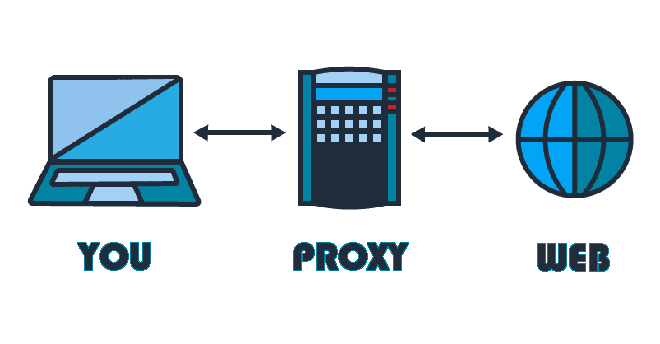3 Reasons Why Your Business Needs A Proxy Provider

Most of us have only a limited understanding of what a proxy server can do. We know that it makes using public Wi-Fi safer and that we can access geo-restricted content such as Netflix. But that’s barely scratching the surface. The true purpose of proxies goes well beyond that, and they’re especially valuable for businesses.
Even if you’re not part of the technical department in your company, you probably know that a proxy server masks your IP address and acts as an intermediary between your computer system and the internet. While this may sound abstract and trivial, by the end of this article, you’ll know why a proxy IP address is critical for many business functions from security to customer service.
Security
Nowadays, cybercrimes are rampant, and the majority of victims are not large corporations or regular people, but small businesses. According to a 2019 Data Breach Investigations Report released by Verizon, 43% of victims of data breaches are small businesses, and this is mostly because they believe they won’t be targeted.
Small business owners tend to focus more on cutting costs and increasing productivity, and they’re not too concerned with information management and security. This can be easily exploited by hackers. Maybe a proxy server is not enough to protect you against any an all cyberattacks, but it will add a layer of security because by masking your IP credentials, it makes it harder for hackers to find the servers where your information is located.
Keep in mind that you’ll need to use a reliable private proxy provider and not one of the many free public proxies that are often run by hackers to get access to this type of information more easily.
Employee Internet Usage
No employers want their staff to access inappropriate or unsecured websites using company networks, and there’s also the issue of social media platforms reducing productivity. For this reason, companies have internet usage policies in place but telling people they can’t do something doesn’t mean they won’t.
By using a proxy server, network administrators can monitor what devices have access to the company network, what sites those devices visit, and make sure company policies are being restricted by blocking access to certain websites. Tracking this information also provides insight into what type of content is accessed for internal purposes and can alert you to potential illegal activity or security breaches from inside the company.
Faster Speeds and Bandwidth Savings
Because of all the additional work is done by proxy serves in the background, many people assume that it will result in slower internet speeds. That’s not the case. On the contrary, proxy servers can be used to optimize internet speed and bandwidth because they can compress traffic, strip ads from websites, and cache files, and websites which keeps busy networks running smoothly.
Note that if your business website gets a lot of traffic, there’s always a chance that your web server will crash which will have a negative impact on customer experience but also on your search results ranking. Major search engines such as Google penalize even websites that are slow to load.














